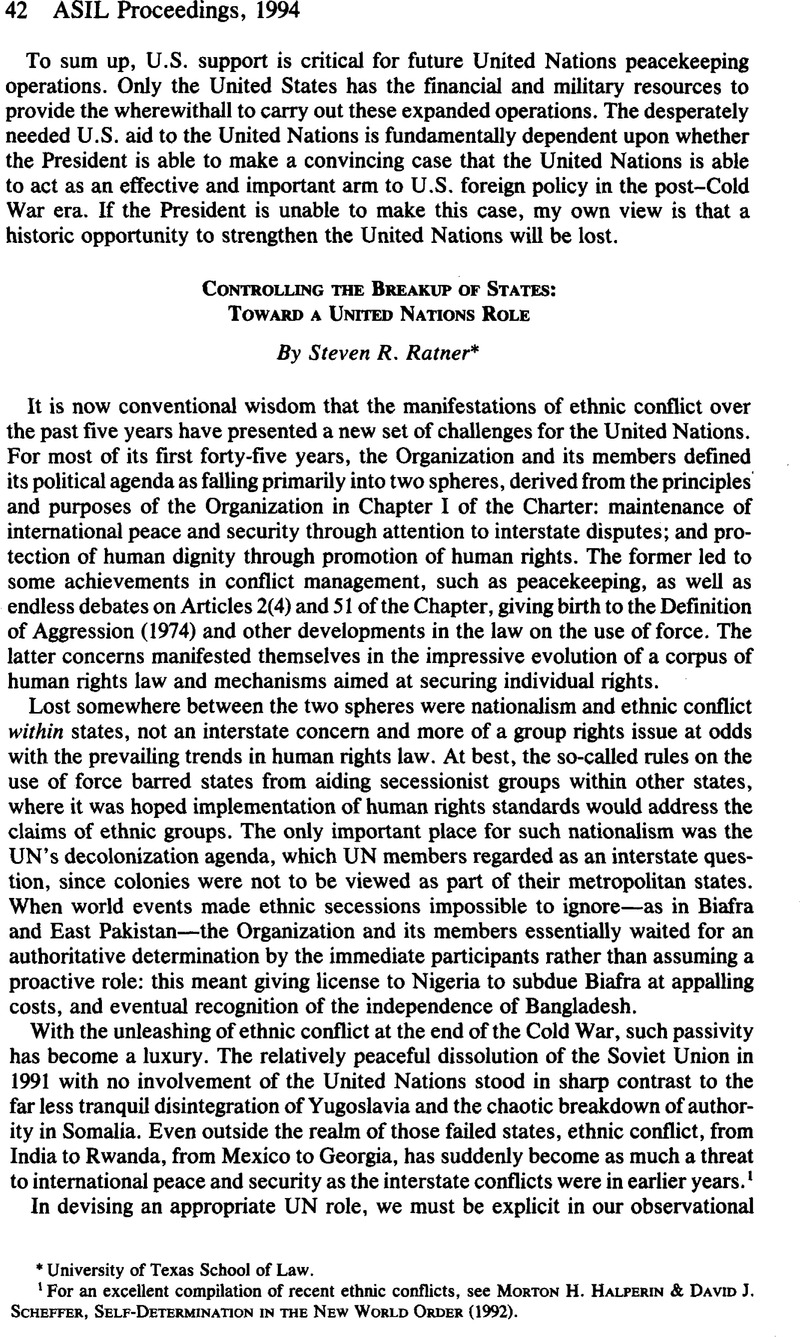Article contents
Controlling the Breakup of States: Toward a United Nations Role
Published online by Cambridge University Press: 28 February 2017
Abstract

- Type
- The Rise of Nationalism and the Breakup of States
- Information
- Copyright
- Copyright © American Society of International Law 1994
References
1 For an excellent compilation of recent ethnic conflicts, see Morton Halperin, H. & Scheffer, David J., Self-Determination In The New World Order (1992)Google Scholar.
2 See Communities in Transition: Autonomy, Self-Governance and Independence, remarks by D’Amato, Anthony, Franck, Thomas M. and Reisman, W. Michael, 87 ASIL PROC. 248, 251-66 (1993)Google Scholar.
3 See Gidon Gottlieb, Nation Against State: A New Approach To Ethnic Conflicts And The Decline Of Sovereignty (1993).
4 Declaration of Principles of International Law Concerning Friendly Relations and Co-operation Among States in Accordance with the Charter of the United Nations. GA Res. 2625 (XXV) (24 October, 1970). See Rosenstock, Robert, The Declaration of Principles of International Law Concerning Friendly Relations: A Survey , 65 AJIL 713, 730-33 (1971)Google Scholar.
5 See Opinions of the Arbitration Commission of the European Community Conference on Yugoslavia, 31 ILM 1488 (1992).
6 See Gordenker, Leon, The Un Secretary-General And The Maintenance Of Peace 180-90 (1967)CrossRefGoogle Scholar.
7 Dag Hammarskjöld, The International Civil Servant in Law and in Fact (30 May 1961), reprinted in Servant Of Peace: A Selection Of The Speeches And Statements Of Dag Hammarskjöld, Secretary-General Of The United Nations 1953-61, at 338 (Wilder Foote ed., 1962).
8 See Helman, Gerald B. & Ratner, Steven R., Saving Failed States , 89 Foreign Pol’Y 3 (Winter 1992-1993)Google Scholar.
9 See SC Res. 807 (19 February 1993) and 836 (4 June 1993) (Bosnia and Croatia); SC Res. 794 (3 December 1992) and 814 (26 March 1993) (Somalia).
- 1
- Cited by


